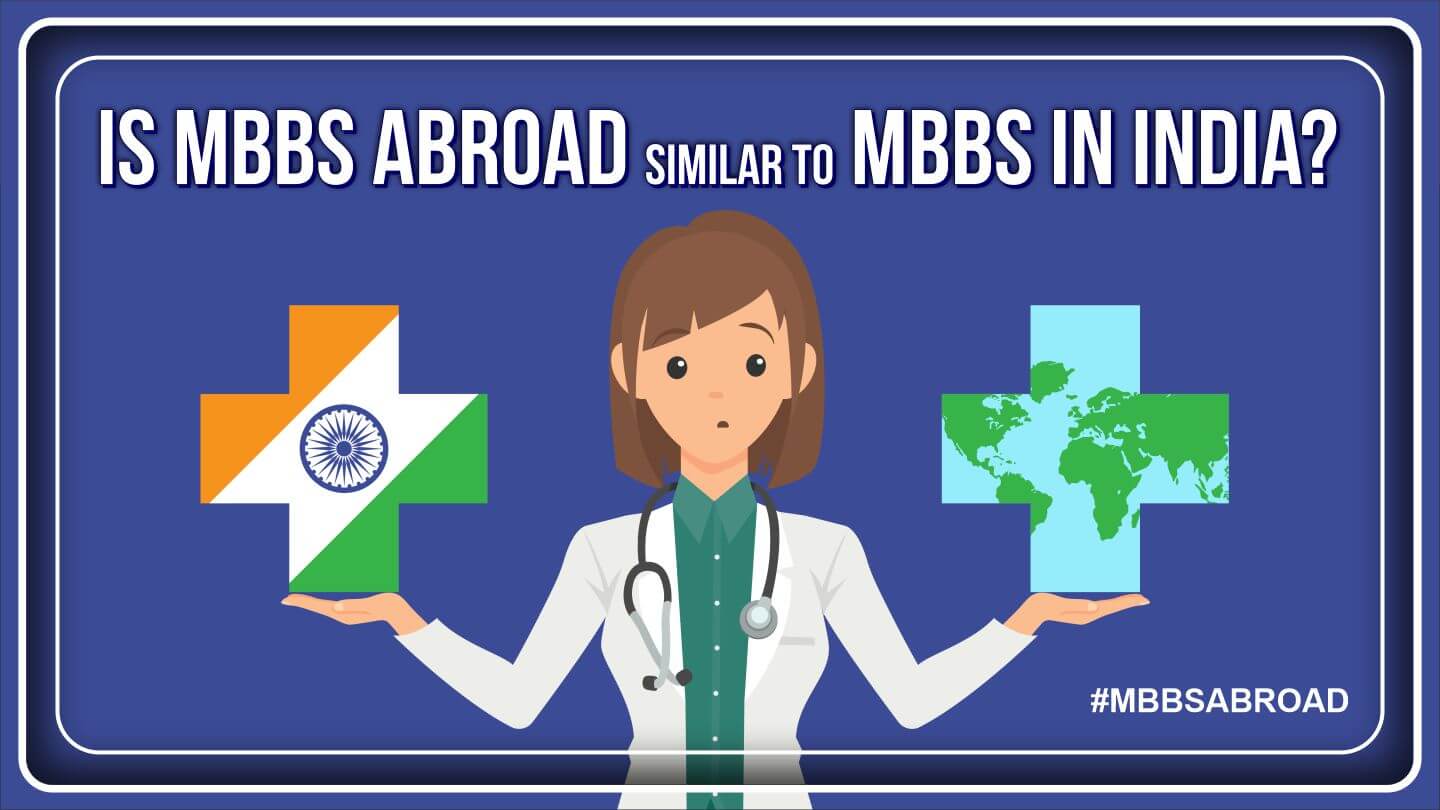MBBS (Bachelor of Medicine and Bachelor of Surgery) abroad is not entirely similar to MBBS in India. Here are some of the differences between MBBS abroad and MBBS in India:
- Curriculum: The curriculum for MBBS abroad is generally more advanced than the syllabus followed in Indian medical colleges. Foreign universities cover a wide range of topics, including the latest advancements in medicine. In contrast, Indian medical colleges follow the syllabus prescribed by the Medical Council of India (MCI).
- Duration: The duration of MBBS in foreign universities is generally six years, including one year of internship. In contrast, the duration of MBBS in India is five and a half years, including one year of internship.
- Clinical Exposure: Foreign universities offer more clinical exposure to students than Indian medical colleges. Students can learn from experienced doctors, gain practical knowledge and skills, and prepare themselves for a successful career in medicine.
- Infrastructure: The infrastructure of foreign universities is generally more advanced than Indian medical colleges. Foreign universities have world-class facilities, including well-equipped laboratories, advanced medical equipment, and modern classrooms.
- Cost: The cost of studying MBBS abroad varies depending on the country and university. Some countries offer MBBS programs at a lower cost than Indian medical colleges, while some countries have high fees.
- Recognition: Indian medical degrees are recognized by the Medical Council of India (MCI) and are valid in India. However, MBBS degrees from foreign universities are also recognized in India, and students may need to take additional tests to practice medicine in India.
In conclusion, MBBS abroad and MBBS in India have their own advantages and disadvantages. While MBBS abroad offers an advanced curriculum, more clinical exposure, and world-class infrastructure, it may not be recognized in India. Indian medical colleges offer a recognized degree, affordable cost, and a more traditional teaching method. Students should choose the program that suits their personal preferences, career goals, and financial situation.

